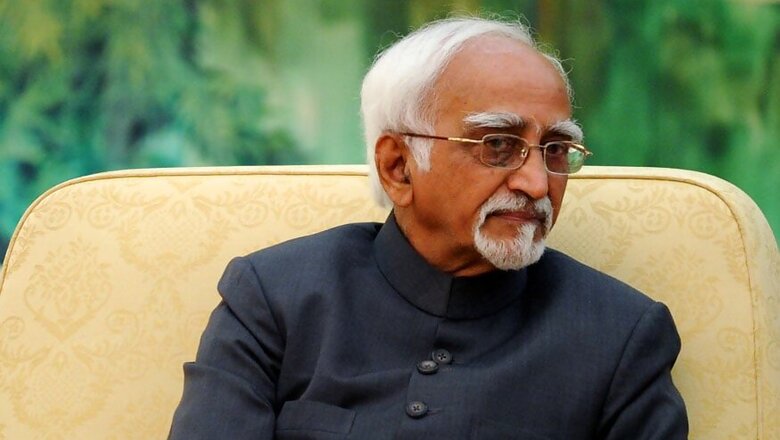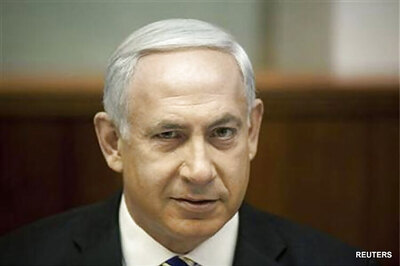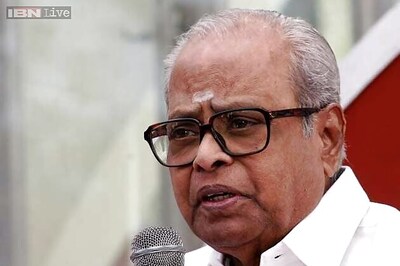
views
Bengaluru: Tolerance has to become an essential national virtue to promote harmony transcending sectional diversities, Vice-President M Hamid Ansari on Sunday said.
Tolerance is a pragmatic formula for the functioning of society without conflict between different religions and political ideologies, among others, he said speaking at the 25th annual convocation of the National Law School of India University.
Yet, he said, tolerance alone is not a strong enough foundation for building an inclusive and pluralistic society and it must be coupled with "understanding and acceptance".
In this regard, he recalled Swami Vivekananda's words, "We must, not only tolerate other religions, but positively embrace them, as truth is the basis of all religions."
The outgoing Vice-President said the challenge today is to reiterate and rejuvenate secularism's basic principles, including freedom of religion and tolerance.
The challenge also is to emphasise that equality has to be substantive, that freedom of religion be re-infused with its collectivist dimensions, he added.
"Also toleration should be reflective of the realities of Indian society and lead to acceptance," he said.
Further, Ansari said the "version of nationalism" that places cultural commitments at its core promotes intolerance and arrogant patriotism.
"The version of nationalism that places cultural commitments at its core is usually perceived as the most conservative and illiberal form of nationalism. It promotes intolerance and arrogant patriotism," he said.
Ansari also said the manifestation of the alternate viewpoint of "purifying exclusivism" threatens to rule out any dissent, however innocent.
"More recently an alternate viewpoint of 'purifying exclusivism' has tended to intrude into and take over the political and cultural landscape," he said.
"One manifestation of it is an increasingly fragile national ego that threatens to rule out any dissent, however innocent," he added.
Hyper-nationalism and closing of mind is also a manifestation of insecurity about one's place in the world, the vice-president said.
He also said that while ensuring external and domestic security is an essential duty of the state, there seems to be a trend towards sanctification of military might overlooking former US President George Washington's caution about overgrown military establishments which, under any form of government, are inauspicious to liberty.
"Citizenship does imply national obligations. It necessitates adherence to and affection for the nation in all its rich diversity. This is what nationalism means, and should mean, in a global community of nations," he said.
Ansari said democracy has to be judged not just by the institutions that formally exist, but by the extent to which different voices from diverse sections of the people can actually be heard.
"Its 'raison detre' is recognition of the other," he remarked.
The vice-president said programmes or principles evolved by political parties based on religion amount to recognising religion as a part of the political governance which the Constitution expressly prohibits.
"It violates the basic features of the Constitution," he said.
Positive secularism negates such a policy and any action in furtherance thereof would be violative of the basic features of the Constitution, Ansari added.
Despite its clarity, various attempts, judicial and political, have been made to dilute its import and to read new meaning into it, Ansari said.
Credible critics have opined that the December 11, 1995 judgment of the Supreme Court Bench is highly derogatory of the principle of secular democracy and that a larger Bench should reconsider it and undo the great harm caused, he pointed out.
"This remains to be done; instead, a regression of consciousness (has) set in and the slide is now sought to be accelerated and is threatening to wipe out even the gains of the national movement summed up in 'sarvadharma sambhav'," he said.




















Comments
0 comment